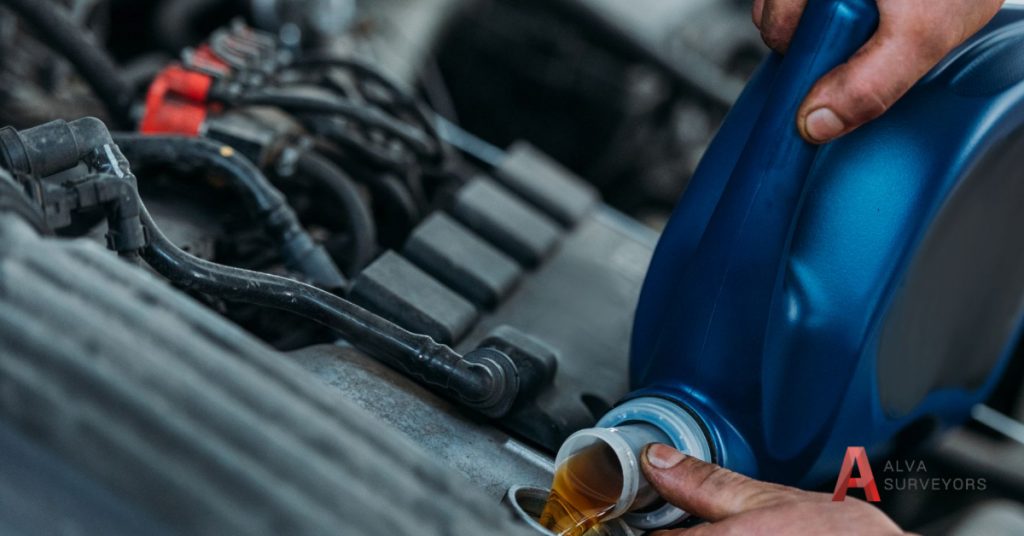Diesel powered engines have remained popular around the world, especially among light commercial vehicles, caravans, motor homes and other heavy duty vehicles. Their popularity is due to a number of factors including fuel efficiency, lower CO2 emissions, compression ignition and greater torque.
However, due to the special combustion of diesel engines, its fuel tanks are susceptible to the diesel bug.
What is the diesel bug?
The diesel bug is used to describe algae, fungi or microbes which contaminate fuel tanks of diesel automobiles. It is caused by water condensation, which is what happens when the diesel in your fuel tank cools down after heating up while driving. When the diesel cools down, it causes dense water inside the fuel tank which is precisely what breeds the diesel bug.
The diesel bug doubles its number every 20 minutes and a single bacteria microbe can produce about 7 million microbes under 24 hours. Diesel bug also has a very short life span, which means, millions of them die as they reproduce millions. These dead microbes/fungi sink to the bottom of the fuel tank and can cause blockages and serious damage to the vehicle.
Biodiesel are especially susceptible to diesel bug because they tend to attract and retain more water than traditional diesel fuel. Conidia goes more into the basics of diesel bug.

How can you fight diesel bug?
The main reason why the diesel bug thrives is because of water in diesel. Therefore, the easiest way to fight diesel bug is to make sure your diesel and fuel tank have no water in them. However, in reality this is a little more difficult to achieve because diesel fuel tanks always experience water condensation due to the combustion style of diesel engines.
This problem can be minimized by frequently topping up your fuel tank to reduce its air space, making it less likely to have damp air.
Another good way to fight against the diesel bug constantly drain off water, sludge and debris from the tank by using the drain plug at the bottom of the tank.
Furthermore, there are chemical additives to fight the diesel bug based on its need for water. The additives can be either biocides or dispersants. Biocide additives function by dehydrating the cells of the diesel bugs which makes it impossible for them to feed or multiply, while dispersants lift the water in the container/fuel tank as a suspension, thereby destroying the diesel bug’s environment.
Finally, one of the most important weapons against diesel bug is to regularly maintain your diesel engine and fuel tanks. Regular checks and assessments would help you discover the diesel bugs early, before they cause damage to your engine.
How do I know if my fuel is contaminated with Diesel Bug?
80% of diesel engine failures occur because the fuel gets contaminated. Therefore, having a good quality diesel fuel is important for keeping your vehicle running optimally.
The diesel bug is typically black or dark brownish in color, depending on the type of bug it is. It can also cause many complications in your vehicle, some of which are highlighted below:
- More fuel consumption.
- Exhaust emissions.
- Blocked filters.
- Problems with starting your engine.
- Engine failure.
The list is not exhaustive. But if you notice any of the above-mentioned problems, alongside black or dark brownish sediments in your filter, you should immediately have your fuel tank properly checked.
How to Get Rid of Diesel Bug?
If you discover diesel bug in your fuel tank you should immediately clean and decontaminate the tank. You must also clean/polish the fuel to rid it of the bugs. Not doing either of these can create a situation in which you put back your cleaned diesel fuel into a contaminated fuel tank, or you put back contaminated fuel into a clean fuel tank.
An easier alternative would be to take your vehicle to a professional and have them fix all the problems for you.
What Can Diesel Bug do to your Fuel?
Any fuel affected by the smallest quantity of diesel bug is at a risk of increased deterioration. Bad fuel in turn can cause severe problems to the vehicle’s engine. They put the vehicle at serious risk of an engine breakdown.
The diesel bug also causes problems with fuel gauging systems by clogging up injectors and blocking filters.
How Can You Prevent the Diesel Bug?
For the diesel bug, prevention is always better than cure. It is also cheaper. It is far better to create an environment which prevents diesel bug than to look for solutions after its caused problems to your vehicle’s engine.
Here are some methods to prevent diesel bug:
- Proper maintenance: this means regularly cleaning your fuel tank and topping up your diesel constantly. It also means taking your vehicle for periodic checks with a professional and installing the highest quality filters.
- Excellent fuel tank quality: Water condensation is more extreme in low quality fuel tanks. Therefore, having a good quality fuel storage tank, which are air tight would reduce water condensation and reduce the possibility of creating an environment for diesel bug. Furthermore, make sure your fuel tanks are regularly inspected the for leaks.
- Maintain your diesel: Another important method to prevent diesel bug is to make sure that your diesel is kept in the best condition. You can do this by:
- Establishing a system of diesel maintenance to remove water and debris from your fuel.
- You should also make sure your diesel stays away from reactive metals and metal alloys.
- Regular diesel usage: Diesel bug is more likely to multiply in immobile fuel tanks. Therefore, if you have a summer caravan home or a seasonal touring caravan, you are more likely to experience diesel bugs. An easy solution is to constantly move/use your fuel by driving your vehicle or draining them from the fuel tank.
- Monitor the vehicle and pay attention to any recurring issue or any early indicator of the presence of the diesel bug.
In conclusion, the ‘diesel bug’ is used to refer to the microbial bugs or fungi that are caused by water condensation in diesel fuel tanks. You can fight them by reducing water from your diesel/fuel tank and by frequently topping up your diesel to reduce the air space in your tank. There are also biocide and dispersant additives for fighting the bug.
Finally, you can prevent the diesel bug by regularly checking and maintaining your diesel, fuel tank and vehicle.






